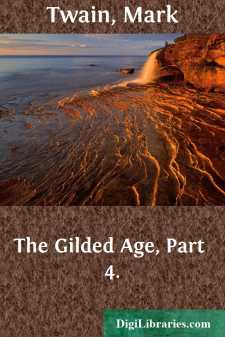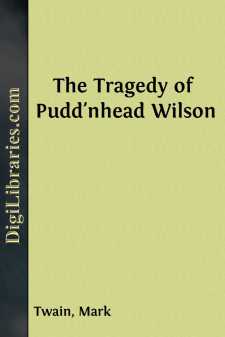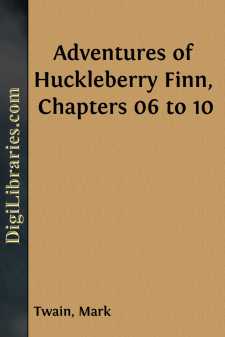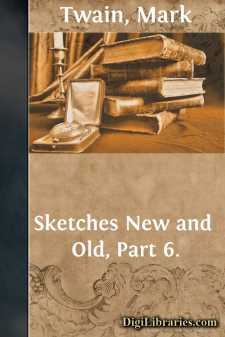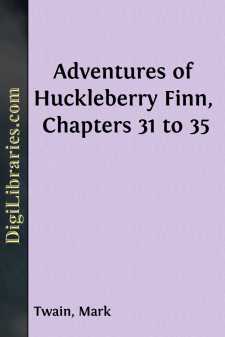Categories
- Antiques & Collectibles 13
- Architecture 36
- Art 48
- Bibles 22
- Biography & Autobiography 813
- Body, Mind & Spirit 142
- Business & Economics 28
- Children's Books 17
- Children's Fiction 14
- Computers 4
- Cooking 94
- Crafts & Hobbies 4
- Drama 346
- Education 46
- Family & Relationships 57
- Fiction 11829
- Games 19
- Gardening 17
- Health & Fitness 34
- History 1377
- House & Home 1
- Humor 147
- Juvenile Fiction 1873
- Juvenile Nonfiction 202
- Language Arts & Disciplines 88
- Law 16
- Literary Collections 686
- Literary Criticism 179
- Mathematics 13
- Medical 41
- Music 40
- Nature 179
- Non-Classifiable 1768
- Performing Arts 7
- Periodicals 1453
- Philosophy 64
- Photography 2
- Poetry 896
- Political Science 203
- Psychology 42
- Reference 154
- Religion 513
- Science 126
- Self-Help 84
- Social Science 81
- Sports & Recreation 34
- Study Aids 3
- Technology & Engineering 59
- Transportation 23
- Travel 463
- True Crime 29
Mark Twain
Mark Twain, born Samuel Langhorne Clemens in 1835, was a prominent American author and humorist known for his sharp wit and keen observations on human nature. He gained fame for his classic novels "The Adventures of Tom Sawyer" and "Adventures of Huckleberry Finn," which are celebrated for their vivid depictions of life along the Mississippi River and their incisive commentary on social issues. Twain's storytelling prowess and his ability to blend humor with critical social commentary have solidified his place as one of the most influential figures in American literature.
Author's Books:
Sort by:
by:
Mark Twain
CHAPTER XXVIII. Whatever may have been the language of Harry's letter to the Colonel, the information it conveyed was condensed or expanded, one or the other, from the following episode of his visit to New York: He called, with official importance in his mien, at No.— Wall street, where a great gilt sign betokened the presence of the head-quarters of the "Columbus River Slack-Water...
more...
by:
Mark Twain
Chapter 1 It was in 1590—winter. Austria was far away from the world, and asleep; it was still the Middle Ages in Austria, and promised to remain so forever. Some even set it away back centuries upon centuries and said that by the mental and spiritual clock it was still the Age of Belief in Austria. But they meant it as a compliment, not a slur, and it was so taken, and we were all proud of it. I...
more...
by:
Mark Twain
"MORAL STATISTICIAN."—I don't want any of your statistics; I took your whole batch and lit my pipe with it. I hate your kind of people. You are always ciphering out how much a man's health is injured, and how much his intellect is impaired, and how many pitiful dollars and cents he wastes in the course of ninety-two years' indulgence in the fatal practice of smoking; and in the...
more...
by:
Mark Twain
CHAPTER 1 вÐâ Pudd'nhead Wins His Name Tell the truth or trumpвÐâbut get the trick.вÐâPudd'nheadWilson's Calendar The scene of this chronicle is the town of Dawson's Landing, on the Missouri side of the Mississippi, half a day's journey, per steamboat, below St. Louis. In 1830 it was a snug collection of modest one- and two-story frame...
more...
by:
Mark Twain
CHAPTER VI. WELL, pretty soon the old man was up and around again, and then he went for Judge Thatcher in the courts to make him give up that money, and he went for me, too, for not stopping school. He catched me a couple of times and thrashed me, but I went to school just the same, and dodged him or outrun him most of the time. I didn't want to go to school much before, but I reckoned...
more...
by:
Mark Twain
CHAPTER XLVI. Philip left the capitol and walked up Pennsylvania Avenue in company with Senator Dilworthy. It was a bright spring morning, the air was soft and inspiring; in the deepening wayside green, the pink flush of the blossoming peach trees, the soft suffusion on the heights of Arlington, and the breath of the warm south wind was apparent, the annual miracle of the resurrection of the earth. The...
more...
by:
Mark Twain
"Now that corpse," said the undertaker, patting the folded hands of deceased approvingly, was a brick-every way you took him he was a brick. He was so real accommodating, and so modest-like and simple in his last moments. Friends wanted metallic burial-case—nothing else would do. I couldn't get it. There warn't going to be time—anybody could see that. "Corpse said never mind,...
more...
by:
Mark Twain
CHAPTER XI. And sure enough, two or three years afterward, we did hear him again. News came to the Pacific coast that the Vigilance Committee in Montana (whither Slade had removed from Rocky Ridge) had hanged him. I find an account of the affair in the thrilling little book I quoted a paragraph from in the last chapter—"The Vigilantes of Montana; being a Reliable Account of the Capture, Trial and...
more...
by:
Mark Twain
CHAPTER XXXI. WE dasn't stop again at any town for days and days; kept right along down the river. We was down south in the warm weather now, and a mighty long ways from home. We begun to come to trees with Spanish moss on them, hanging down from the limbs like long, gray beards. It was the first I ever see it growing, and it made the woods look solemn and dismal. So now the frauds...
more...
by:
Mark Twain
The following curious history was related to me by a chance railway acquaintance. He was a gentleman more than seventy years of age, and his thoroughly good and gentle face and earnest and sincere manner imprinted the unmistakable stamp of truth upon every statement which fell from his lips. He said: You know in what reverence the royal white elephant of Siam is held by the people of that country. You...
more...


